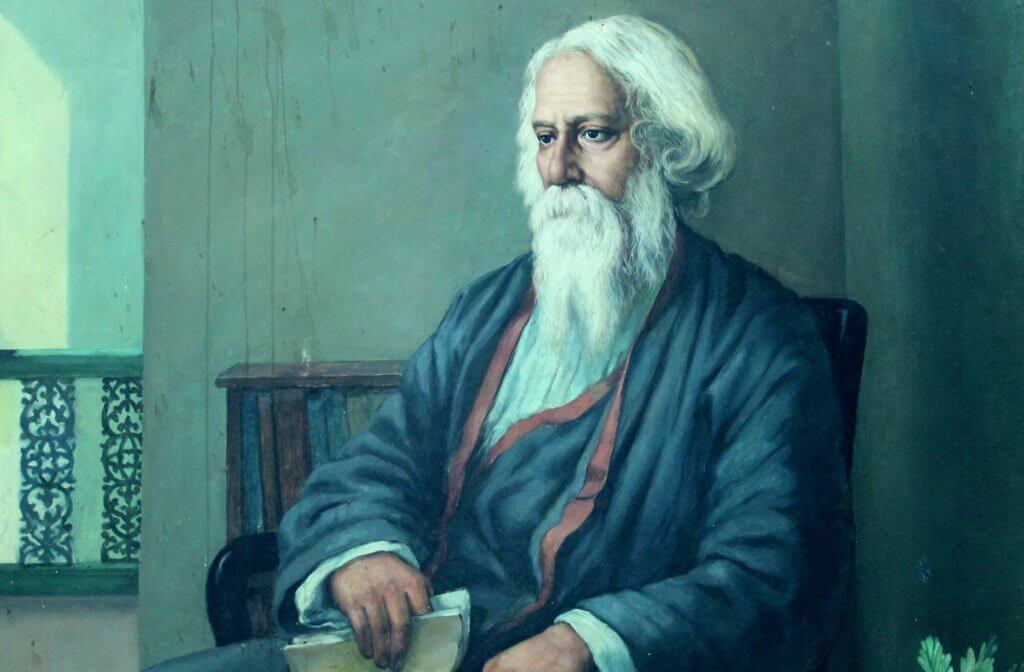Rabindranath Tagore (May 7, 1861 – August 9, 1971), also known as Gurudev. He is a world-renowned poet, litterateur, philosopher and Nobel laureate of Indian literature. Through Bengali literature, there was a new vision in Indian cultural consciousness.
He is the first Nobel laureate in Asia. He is the only poet whose two compositions became the national anthem of two countries – India’s national anthem Jana Gana Mana and Bangladesh’s national anthem Amar Sonar Bangla Gurudev’s compositions.
Table of Contents
Life introduction of Rabindranath Tagore
Rabindranath Tagore was born as the child of Devendranath Tagore and Sharada Devi on May 8, 1861 in Addasanko Thakurbari, Kolkata. He got his early education at the prestigious St. Xavier’s School. In his desire to become a barrister, he enrolled in a public school in Bridgton, England, then studied law at the University of London, but returned home without a degree in 180. He was married to Mrinalini Devi in ??173.
Tagore’s mother died in his childhood and his father was a widely traveled person, so he was raised mostly by servants. The Tagore family was a pioneer during the Bengal Renaissance, publishing literary magazines; Bengali and Western classical music and theater and screenplays were regularly performed there. Tagore’s father invited many professional Dhrupad musicians to stay indoors and teach Indian classical music to children.
Tagore’s eldest brother Dwijendranath was a philosopher and poet and second brother Satyendranath was the aristocrat and formerly the first Indian appointee for all European civil service. Jyotirindranath, a brother, was a musician and playwright and his sister Swarnakumari was a novelist. Jadirindranath’s wife Kadambari Devi was probably a little older than Tagore and was a dear friend and a woman of powerful influence who suddenly committed suicide at 14. For this reason, Tagore and the rest of his family were surrounded by a lot of problems for some time.
Tagore then largely avoided schooling and preferred to move to Marrer or nearby Bolpur and Panihati, and then visited many places with the family. His brother Hemendranath taught him and physically conditioned him – his brother was taught by swimming the Ganges or through the hills, by gymnastics, and doing judo and wrestling exercises. Tagore studied drawing, physiology, geography and history, literature, mathematics, Sanskrit and English as his favorite subjects. Tagore, however, resented formal education – the local Presidency College had a scholarly day of suffering from his scholars. Many years later he said that proper teaching does not explain things; According to him proper teaching is curiosity.
After his Upanayana (life to come) rite at the age of eleven, Tagore and his father left Calcutta in February 173 to visit India for several months, from his father’s Santiniketan estates and from the Himalayan mountains of Delahousi [9] from Amritsar. They had reached the site. There Tagore studied biography, history, astronomy, modern science and Sanskrit and also studied the classical poems of Kalidasa.
Constructivity and work
Right from childhood, people began to get an idea of ??his amazing talent in poetry, poetry and language. He wrote the first poem at the age of eight and his first short story was published in 18 at the age of only sixteen. He drew all the literature, philosophy, culture etc. of the country and abroad within himself. He was also Brahma-Samaji because of his father’s Brahma-Samaji. But through his creations and deeds, he also promoted Sanatana Dharma. The everlasting contact between man and God emerges in different forms within his creations.
There is hardly any branch of literature in which he is not composed – poetry, anthem, fiction, novel, drama, management, craftsmanship – he has composed in all genres. His published works include Geetanjali, Geetali, Geetimalya, Katha O Kahani, Shishu, Bholanath, Kanika, Palika, Kheya etc. He also translated some books into English. After English translation, his talent spread all over the world.
Tagore composed about 2,230 songs. Rabindra Sangeet is an integral part of Bengali culture. Tagore’s music cannot be separated from his literature. Most of his compositions have now been included in his songs. Influenced by the Thumri style of Hindustani classical music, these songs present different shades of human emotion.
The songs of Gurudev in different ragas give the impression that they were composed only for that particular raga. This nature lover with a deep affection for nature is the only person who wrote the national anthem for two countries.
The honor
He received the Nobel Prize for Literature in 1913 for his poetry Gitanjali. In 1915, he was awarded the title of knighthood by King George V, which he returned in 1919 in protest against the Jallianwala Bagh massacre.

